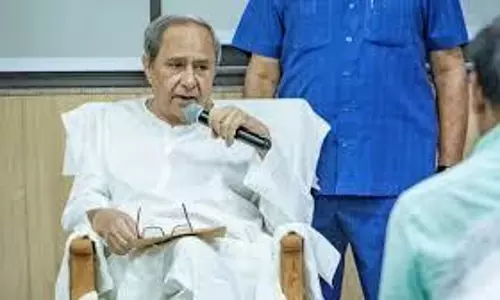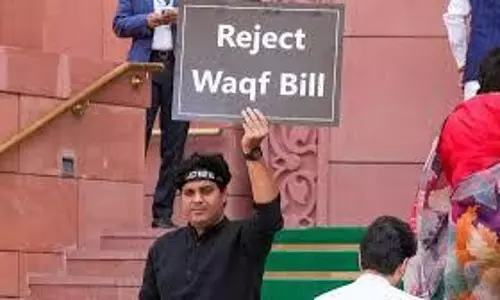
UP men earning low wages get I-T notices of ₹45.54 crore
text_fieldsThree men from Uttar Pradesh, earning low salaries, were left stunned after receiving income tax notices demanding a staggering ₹45.54 crore collectively. The cases highlight the growing menace of identity theft, where fraudulent entities misuse personal identification details to conduct large-scale business transactions.
Among them, 34-year-old Karan Kumar, a contractual worker at SBI’s Khair branch, was the most affected. Despite earning just ₹15,000 per month, he was served with an I-T notice for ₹33.88 crore. Shocked, he consulted legal experts, who uncovered that a Delhi-based company, Mahaveer Enterprises, had been using his Aadhaar and PAN details to trade petroleum products and steel goods. Acting on advice from tax officials, Karan filed a complaint at Chandaus police station. Station House Officer Haribhaan Singh confirmed that an investigation is underway.
Similarly, Mohit Kumar, a transport company worker with a monthly income of ₹8,500, received a notice of ₹3.87 crore on March 28. Distressed, he approached his employer, who sought legal counsel. A GST lawyer discovered that a firm named MK Traders had been conducting substantial business transactions under Mohit’s identity since 2020. The revelation left Mohit in despair, as he struggles to support his elderly parents. He recounted how, in 2020, he had applied for a job in Delhi and submitted his identification documents, which he now suspects may have been misused.
Adding to the list of victims, juice vendor Raees Ahmad, who earns ₹500-600 daily, received a notice for ₹7.79 crore on March 22. Completely unprepared for such a demand, Raees was left in shock. Tax officials remarked that since the notices originated from Delhi, resolving the issue would be complex.
A senior income tax lawyer in Aligarh described the incidents as alarming cases of digital fraud, exposing systemic loopholes in the misuse of digital identity systems. As authorities probe the matter, the victims remain caught in a bureaucratic nightmare, struggling to prove their innocence in a case of financial deception.
With PTI inputs























